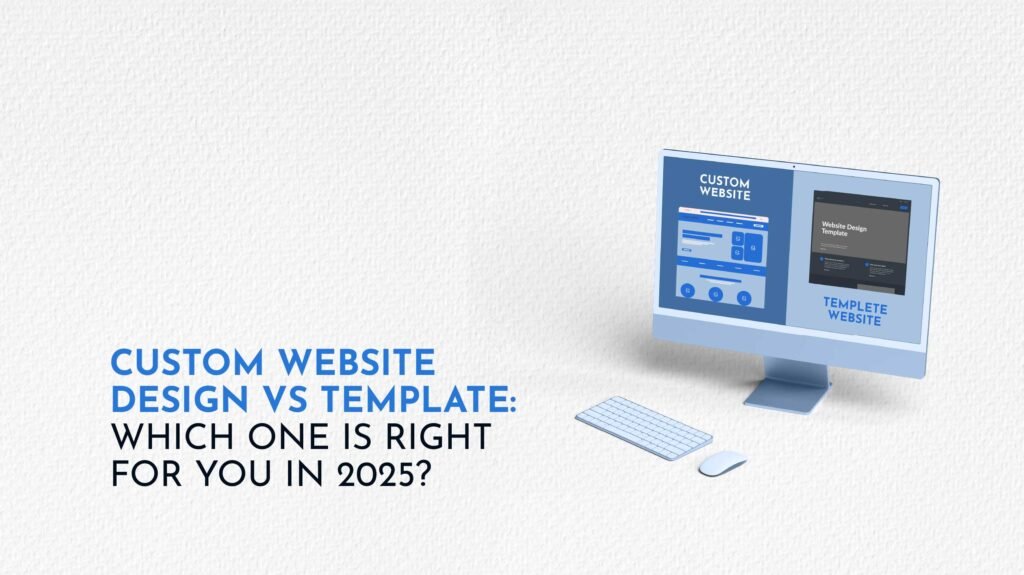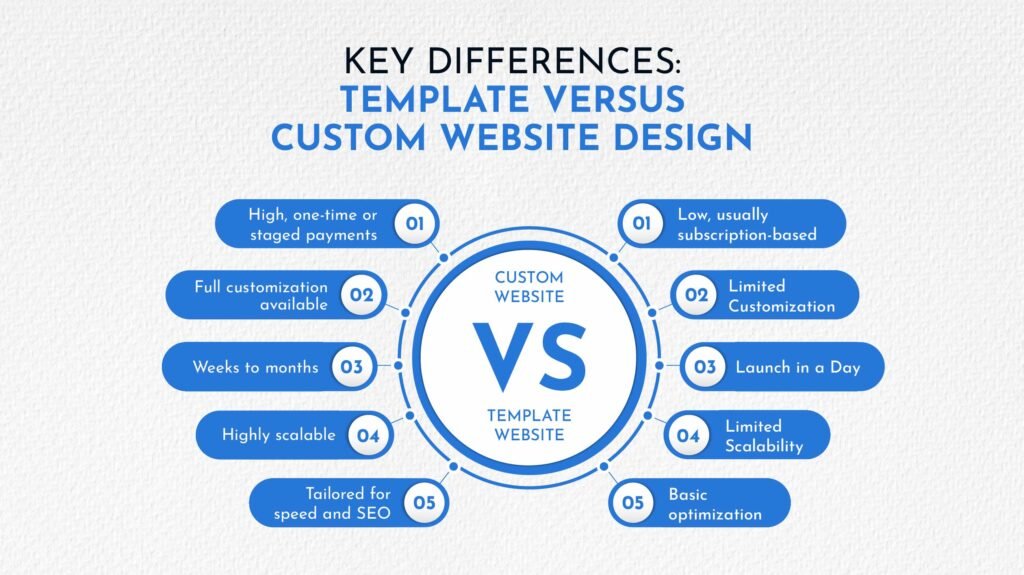
When it comes to launching a new website, small businesses in 2026 face a critical decision: custom website design vs template. This choice impacts your brand’s digital presence, user experience, and long-term growth. While both options have their advantages and drawbacks, understanding the key differences will help you make an informed choice for your business.
Your website is more than just a digital address; it’s your online storefront. First impressions, customer trust, and conversions all hinge on your website design. Choosing between a website template and a custom site is one of the first—and most important steps in crafting that experience.
Let’s break down the differences between a custom website and a template website by evaluating the pros, cons, and best use cases for each.
A template website uses a pre-made layout where you plug in your content and customize limited elements like color, text, and images. Commonly offered by website builders like Wix, Squarespace, and Shopify, templates are ideal for quick setups.
If you’re a small business launching a new website with basic needs, limited time, and a tight budget, a template-based approach can be highly effective. It’s also suitable for personal blogs, portfolios, or temporary landing pages.

|
Feature |
Template Website |
Custom Website |
|
Cost |
Low, usually subscription-based |
High, one-time or staged payments |
|
Customization |
Limited |
Full customization available |
|
Time to Launch |
Days |
Weeks to months |
|
Scalability |
Limited |
Highly scalable |
|
Performance |
Basic optimization |
Tailored for speed and SEO |
|
User Experience |
Standard layout |
Designed for optimal user experience |
|
Functionality |
Basic tools |
Advanced features and integrations |
|
Maintenance |
Low effort |
Requires regular updates |
|
Design Uniqueness |
Reused templates |
Unique to your brand |
|
SEO Control |
Limited |
Full control over structure and metadata |
It all comes down to your goals, budget, and vision. Here’s how to decide:
For example, custom websites Houston businesses rely on are built for scaling and differentiation in competitive local markets. A custom website might cost more initially, but it delivers a higher return on investment in user engagement and growth.
Your website isn’t just a digital asset—it’s a strategic investment. While template websites are a great starting point, upgrading to a custom website design vs template setup eventually becomes necessary for serious businesses.
Whichever option you choose, keep best practices in mind: mobile responsiveness, fast load times, seamless navigation, and strong branding. Whether you’re using a template website or building a custom site, prioritize delivering a compelling user experience.
Still debating between a custom website design vs a template? Our team can guide you through the process, evaluate your business needs, and deliver high-performing websites—whether from scratch or through smartly chosen web page templates.